#German-Jewish
Photo

Else Lasker-Schüler, German-Jewish poet
#Else Lasker-Schüler#Else Lasker-Schuler#Schuler#Lasker#Lasker-Schüler#Lasker-Schuler#Germany#German#poetry#poet#German-Jewish#Jewish#1945#1940's#Elberfeld#Jerusalem#1900's#1800's#Else Schuler#Else Schüler#1869#1860's
17 notes
·
View notes
Text
no way i just saw someone say that israeli jews “stole” hebrew from yiddish. bestie, im gonna hold your hand when i say this-
#like where tf do you think yiddish comes from 😭#i literally can’t anymore#people are just brain dead with their hate for jews#antisemitism#jumblr#jewish#lost brain cells reading that take tbh#(it was in a screenshot from reddit btw)#(and yes ik yiddish is closer to german)#hebrew#yiddish
612 notes
·
View notes
Text
I made a golem :)
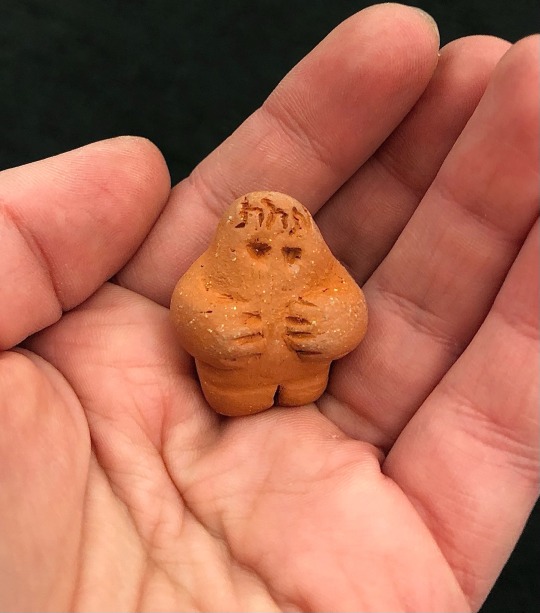

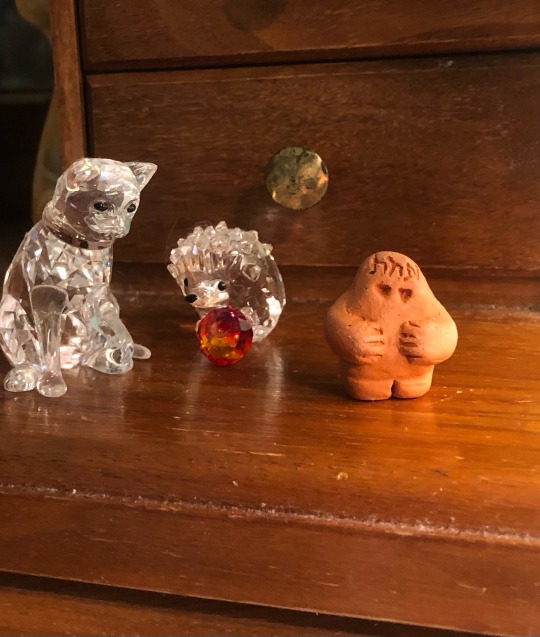
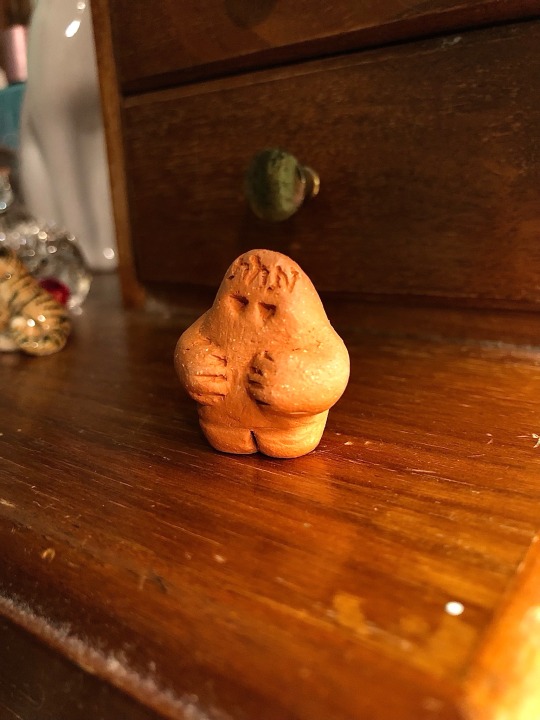
#art#ceramics#golem#Jewish#fucking struggled with the writing on his forehead lol#I poked a little hole on the top of his head for an eye pin#so it could be a necklace or something#but I think he’s a bit too big for that. maybe a keychain#I’m in a ceramics class rn I will post more stuff I made there soon#recently watched the German expressionist movie abt the golem bc I had access to it and bc of Jacob Geller#thank you Jacob very cool#I liked it
2K notes
·
View notes
Text
i thought we as a society were over writing nazi germany fanfiction aus but it seems we arent. disappointing!
#from katya#not a tag#me after seeing ppl writing a ****german guy*** x ***jewish man*** nazi germany au#like bro say it aint so#sincerely... a horrified jewish man
462 notes
·
View notes
Text
Characters reconnecting with their ancestral cultures in an interplanetary setting
@pixiedustandpetrichor asked:
Hi! I am writing a novel with three main female characters in an interplanetary setting. They grow up as orphans in an Irish-coded country and as children are mostly exposed to solely that culture, but they leave after becoming adults.
Character A is Tuareg-coded, B Mongolian-coded, and C is Germanic-coded. It isn’t central to the story, but I would like them to get in touch with/learn more about their ancestral cultures, especially in terms of religion. A does this by actually visiting the planet her parents came from, but B and C do not.
What can I do to depict their relationships with said cultures and their journey to reconnect with them? Would it be realistic for each of them to have different mixed feelings about participating in these cultures and for them to retain some sense of belonging to the culture they grew up in as well? Thank you for your time.
Hello, asker! WWC doesn’t have Tuareg or Mongol mods at the moment, so we're not able to speak to the specifics of cultural and religious reconnection for these particular groups. Still, I want to take this opportunity to provide some general context and elements to consider when writing Tuareg-coded characters, or other characters from groups that have experienced colonization in the real world. My fellow mods will then share thoughts about cultural reconnection in general and with respect to Germanic heritage in particular.
Drawing inspiration from groups that have experienced colonization
As you’re probably aware, the Tuareg are an ethnic group indigenous to North Africa. As with many indigenous groups, they have experienced colonization multiple times over the course of their history. Colonization often leads to the loss or erasure of certain aspects of culture as the colonized people are pressured to conform to the culture of the dominant group. In many cases, it’s near impossible to say what the ancestral culture of a colonized group was prior to colonization.
When coding a fictional culture based on a group that was colonized in the real world, it's important to ask questions about:
Which aspects of culture you're portraying
Where these aspects come from
Whether you're ready to tackle their implications for the world you're building
It’s not necessarily wrong to use elements of coding that draw from cultural aspects influenced by colonization. As I said, it can be very difficult, even impossible, to portray a “pure” culture as it would have been had colonization not occurred–because we simply can’t know what that alternate history would look like, and because so much has been lost or intentionally suppressed that the gaps in our knowledge are too wide to breach. But it’s important to be aware of where these cultural elements are coming from.
Where is your coding coming from and what are the implications?
For example, while the Tuareg today are majoritarily Muslim, this was not the case prior to the Arab conquest of North Africa. Some elements of Tuareg culture today, such as tea ceremonies, are derived from the influence of Arab and Muslim culture and likely did not exist prior to the 20th century. As you’re developing the culture of the Tuareg-coded group in your fictional setting, you have to decide whether to include these elements. There is no right answer–it will depend on what you’re trying to do and why.
Is your setting in our far future, in which case we can assume your Tuareg-coded group is distantly related to today’s Tuareg?
In that case, they will probably have kept many cultural aspects their ancestors acquired through their interactions with other cultures around them–including cultural groups that colonized them. They may–let’s build hopeful worlds!–have reclaimed aspects of their ancestral culture they’d been forced to abandon due to colonization. They may also have acquired new aspects of culture over time. This can be very fun to explore if you have the time and space to do so.
I would recommend speaking with Tuareg people to get a better grasp of how they see their culture evolving over the next however many centuries or millennia, what they wish to see and what seems realistic to them.
Alternatively, maybe your setting is a secondary world unrelated to ours and you only want to draw inspiration from the real-world Tuareg, not represent them exactly. In that case, you need to decide which period of history you’re drawing from, as Tuareg culture is different today from what it was 50 years ago, and different still from 200 years ago or 1000 years ago. You’ll need to research the historical period you’re choosing in order to figure out what was happening at that time and what the cultural influences were. If it’s pre-colonial, you’ll probably want to avoid including cultural elements influenced by colonization from groups that arrived later on.
Finally, if the time period you’re drawing from is post-colonial:
Are you planning to account for the effects of colonization on Tuareg culture?
Will you have an in-world equivalent for the colonization that occurred in real life?
For example, will the Tuareg-coded characters in your world be from a nomadic culture that was forced to become sedentary over the years and lost much of their traditions due to colonial pressure to conform?
Where did this pressure come from in your world–is it different from what happened in ours? If so, how different? And what are the consequences?
Writing about colonization can be quite the baggage to bring into a fictional setting. I’m not saying it can’t be done, but it will certainly require sensitivity and care in portraying it.
In summary: think it through
I’m not saying all this to discourage you, but to point out some of the considerations at play when drawing inspiration from a real-life culture that has experienced colonization. Similar challenges arise for coding based on any other indigenous group in the world.
My advice to you, then, is to first sit down and decide where and when in history your coding is coming from, and what you’re trying to achieve with it. This will help you figure out:
which elements of contemporary Tuareg culture are pertinent to include
How much your coding will be influenced by the Tuareg’s real-life history
To what extent that will inform the rest of the world you’re creating
This, in turn, may help in deciding how to portray your character’s reconnection journey.
Again, I am not Tuareg and this is by no means meant to be an exhaustive list of considerations for writing Tuareg-coded characters, only a few places to start.
If any Tuareg or Amazigh readers would like to chime in with suggestions of their own, please do. As always, please make sure your comments adhere to the WWC code of conduct.
- Niki
Pulling from diaspora and TRA narratives of cultural reconnection
Marika here: This ask plotline could also pull directly from diaspora and TRA narratives of cultural reconnection. Many diaspora and TRA cultural reconnection stories are, in effect, about navigating the difficult process of resuscitating, or renewing ties to culture using limited resources in environments that often lack necessary cultural infrastructure or scaffolding.
See this question here to the Japanese team for suggestions of how to handle such a storyline in a similar sci-fi setting.
More reading: Japanese-coded girl from future
-Marika
Reconnecting with German heritage
Hi, it’s Shira. I’m not sure whether German-Jewish counts as Germanic for the purposes of your post but since German Jews were more assimilated than other Ashkies, Germanness does feel real and relevant to my life (especially because my father worked there for approximately the last decade of his life.) NOTE: when I see “Germanic” vs German I think of cultures from 1500 years ago, not 100-200 years ago, so I can’t help you there, but I’d be surprised as a reader if a character focused on that for reconnection to the exclusion of the 19th century etc.
People in the United States specifically, reconnecting with German heritage, often lean into Bayerischer/Bavarian kitsch, I’ve noticed. Personally, though, what I find most relevant is:
1. The food (although I’ve come to learn that what I grew up eating was closer to veal/chicken scallopini than actual schnitzel because it was drenched in lemon, but I do like the other foods like the potato salad and sweet and sour red cabbage etc.) Your character could try making one of these “ancestral” foods as a way to reconnect?
2. The classical music, because I’m a second generation professional musician – if character C plays an instrument, leaning into that might be meaningful (Beethoven, Bach, Brahms, Mendelssohn, Clara Schumann and her husband Robert, etc.)
3. The nature, especially specifics that I enjoyed during my time there – personally, I loved the bright pink flowers all over the chestnut trees, but there are a lot of choices especially because of the Alps. If C is an artist maybe they can sketch something Germany-related from old photographs they found on the Space Internet?
I think it is VERY realistic for the characters to remain connected to the culture in which they were raised, by the way, whether or not they have positive feelings about it. Culture isn’t an inherited trait. Sure, if they want to completely walk away, they can, but I bet there are still ways it will creep back in without them realizing it simply because it’s really hard to have universal knowledge of the origins of all our quirks. Plus, not everyone feels alienated from their raised-culture just because they’re genetically something else.
P.S. There is also Oktoberfest, which I don’t really get into but is a thing, and beer, which is another point of German cultural pride.
German gentiles, weigh in – y’all have your own stuff, I know! OH YEAH so for German Christians, Christmas “markets” are a whole thing. That’s worth looking up.
–S
What do you mean by Germanic?
Hello it’s Sci! I had to study German history for my historical fantasy novel set in the late 18th century Holy Roman Empire. I am not sure what is meant by Germanic as that can encompass a variety of things.
Germanic people: from the Classical Period of Roman Empire and early Middle Ages. Similar to Mod Shira, I unfortunately can’t help very much here.
The Germanosphere: regions that spoke German, which includes modern day Germany, Austria/Hungary, Switzerland, Lichtenstein, Belgium, and Luxembourg. I generally define this as the regions captured in the Hapsburg Empire along with Switzerland usually encompassing “Central Europe.”
Modern German national identity (i.e. German): post Napoleon and the Congress of Vienna (> 1815) only including the territory of modern day Germany.*
I ask this because modern German national identity is surprisingly recent since Germany only popped up in 1871 under Otto von Bismarck. Previously, Germany was divided into smaller states and city states as a very decentralized region under the German Confederation and before that, the Holy Roman Empire. Depending on the era, you can see different conflicts and divides. During the early days of the Protestant Reformation started by Martin Luther, the northern and southern German territories generally split along Protestant-Catholic lines. The 18th century saw Austria and Prussia as the foci of global power who warred against each other even though both were part of the Holy Roman Empire.
Other states and city-states like Baden-Wurttemberg or Saxony sometimes had power but it was typically more localized compared to Austria. Post-WW2, you saw the split of Germany into West Germany run under capitalism and East Germany run under communism as a satellite Soviet state leading to more modern cultural divides. Due to heavy decentralization historically, each region had its own character with religious and cultural divides.
Assuming that the Germanic character is not from the classical period or early Middle Ages but not from the 19th century either, you can include your character reconnecting to classical folklore like that of Krampus (if they’re Christian), German literature and music like the works of Johann Wolfgang von Goethe or Mozart, or German philosophy like Immanuel Kant.
*A major wrinkle: German royals and nobility married into other states and nations frequently with Britain and Russia being notable examples. In Britain, the House of Hanover took over after the Stuart House died without clear direct heirs. When Queen Victoria married the German prince Albert, they celebrated Christmas with a tree and brought the German tradition of a Christmas tree to Britain and the British Empire. Only during World War I did the royal family’s house of Hanover name change from House of Saxe-Coburg and Gotha to the more “English-sounding” Windsor. As a result, the German cultural influence may be even more widespread than we think.
However, without more specific descriptors of what Germanic means in the context of your story, it can be difficult to determine which aspects of German culture your character could reconnect to.
-Mod Sci
#culture#cultural disconnect#cultural reconnect#race coding#ethnic coding#German#Mongol#Tuareg#setting#science fiction#Jewish#Colonialism#History#North Africa#Arab#Muslim#history
351 notes
·
View notes
Text
My beloved wife is not just a doctor of acupuncture, they also have a Master’s in both English and German. Language is their jam. To their eternal suffering, I do not have perfect grammar. When prompted they said it’s “fairly acceptable” on a day to day basis.
But I do have quirks that make them quietly grit their teeth. One of them is my indifference to differentiation between “is” and “are”. On multiple occasions they’ve tried to explain to me when I misuse “is,” and generally I can’t even parse what’s upset them. They gave an example of me asking, “Is there pickles in the fridge?” rather than the correct “Are there pickles in the fridge?”
They’ve told me that to pacify the editor in their brain they’ll mentally correct my sentences and that’s usually enough. Tonight it was me saying “There is other narrators,” in reference to a series we’re reading. When they pointed it out tonight it was to say that “are” would have been correct because there’s multiple other narrators.
“No,” I countered, “I was trying to use ambiguous language but there is really only one other narrator, so in my mind I knew that and spoke incorrectly because I knew it was singular but the sentence implied it was plural.”
This incensed them further (I also don’t know the difference between further and farther and the pneumonic is just as unhelpful to me as the one for stalactites and stalagmites.)
What’s funny to me though was that I asked about my use of “kind’ve” that people got worked up over in my 20lb ass post. “Doesn’t that bother you? It’s blatantly wrong.”
“No, that’s just a colloquialism, it’s fine.”
#ramblies#funny#that gay wife life#for the love if god please don’t try to provide helpful pneumonics#I am just telling a story and I’m perfectly content at my current levels of aptitude#grammar#please also refrain from jokes about the English/German pairing my wife is Jewish and will not appreciate it#genuinely pneumonic was an autocorrect but yknow what#I’m leaving it
241 notes
·
View notes
Text

Young men under a reed roof, Torremolinos, Spain, Herbert List, 1951
#photography#vintage photography#vintage#black and white photography#herbert list#spain#torremolinos#1950s#1951#german#jewish#lgbtqia artists#queer artists
159 notes
·
View notes
Text
FELICE SCHRAGENHEIM // RESISTANCE FIGHTER
“She was a Jewish resistance fighter during WWII. She is known for her tragic love story with Lilly Wust after she was reported to the Gestapo. She was murdered on a death march from Gross-Rosen concentration camp to Bergen-Belsen concentration camp on 31 Dec 1944.”


176 notes
·
View notes
Text
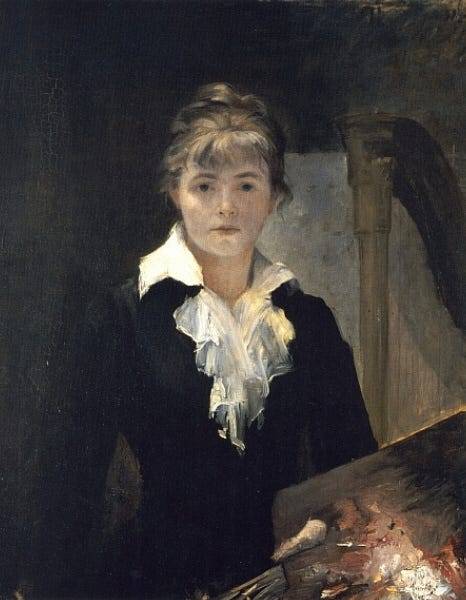

Louise Catherine Breslau (deceased)
Gender: Female
Sexuality: Lesbian
DOB: 6 December 1856
DOD: 12 May 1927
Ethnicity: Polish Jewish, German Jewish
Nationality: German / French (she moved around a bit)
Occupation: Artist
Note: Due to her success at the Salon and favorable notice from the critics, Breslau received numerous commissions from wealthy Parisians. She joined the Salon de la Société Nationale des Beaux-Arts in Paris in 1890, not only exhibiting in its salons but also serving on the jury. She eventually became the third woman artist, and the first foreign woman artist to be bestowed France's Legion of Honor award.
#Louise Catherine Breslau#Lesbian Visibility Week#lgbt history#lesbian history#jewish history#lesbianism#lgbt#female#lesbian#1856#rip#historical#jewish#ashkenazi jewish#german#french#artist#first#popular#popular post
220 notes
·
View notes
Text
In April 1933, Einstein discovered that the new German government had passed laws barring Jews from holding any official positions, including teaching at universities.[129] Historian Gerald Holton describes how, with "virtually no audible protest being raised by their colleagues", thousands of Jewish scientists were suddenly forced to give up their university positions and their names were removed from the rolls of institutions where they were employed.[131]
A month later, Einstein's works were among those targeted by the German Student Union in the Nazi book burnings, with Nazi propaganda minister Joseph Goebbels proclaiming, "Jewish intellectualism is dead."[129] One German magazine included him in a list of enemies of the German regime with the phrase, "not yet hanged", offering a $5,000 bounty on his head.[129][132] In a subsequent letter to physicist and friend Max Born, who had already emigrated from Germany to England, Einstein wrote, "... I must confess that the degree of their brutality and cowardice came as something of a surprise."[129] After moving to the US, he described the book burnings as a "spontaneous emotional outburst" by those who "shun popular enlightenment", and "more than anything else in the world, fear the influence of men of intellectual independence".[133]
A quote from the Wikipedia page of German-American Jewish scientist, Albert Einstein.
What's notable here is how academics and intellectuals raised almost no protest to the systematic purging of Jews from universities in Germany. This is because, as historian Niall Ferguson has noted, that German academics had been promulgating the intellectual basis of Nazism during the 1920's (and probably beforehand).
What we can see here is that rather than defending the dignity and liberty of the individual, academics and intellectuals were the first in line to accept, permit, and collaborate with tyranny. They believed and invented lies. They turned a blind eye to mounting crimes against humanity.
When we look at today's college campuses and see a rising sea of hatred against Jewish students; when we see thousands of non-Jewish students showing little to no concern whatsoever for the rise in antisemitic hatred; when we see academics who glorify Jew-hating mass murderers, we should not be surprised.
What has been is what will be.
The academics who have promulgated anti-Jewish hatred (or stood by and allowed it to spread) today are betraying the same spirit as the German academics who allowed German Jews to be purged and threatened with death by the Nazi regime. And, like the German academics of the 20's and 30's, they believe that their betrayal of justice and liberty are all in the public's best interests.
Of course, they have been wise enough to change their official scapegoat from the Jews to "Israel".
But the net result is the same: Jews-- no matter how great their achievements, like those of Einstein-- are being purged from academic spaces and polite society, once again, to virtually no protest from their peers.
#albert einstein#german jews#jewish#antisemitism#german#academia#universities#nazi regime#1933#goebbels#hitler#holocaust#america#united states#new jersey#physics#physicist#science
212 notes
·
View notes
Text
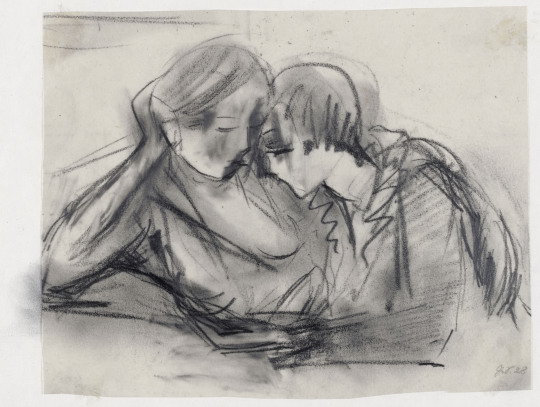
Gertrude Sandmann – Pink Nightgown and Black Pyjamas (1928)
#art#art history#gertrude sandmann#german#jewish#lesbian#lesbian art#wlw#women#drawing#fine art#women artists#lesbian artists#female artists#XXth century#20th century#female homosexuality#intimacy tag
275 notes
·
View notes
Text
What I love and what's heartbreaking about Diasporic languages (e.g., Ladino, Yiddish, ect. ect.) is that I see them as languages of survival. Survival of jewish culture and communities, survival of people in lands that were too often opposed to their very existence. These languages are beautiful to me because I know it's am yisrael chai is irrevocably true, heartbreaking because the Diaspora can be such a hostile environment.
And I don't think this is what many people (non-jews especially, when we're talking about jewish diasporic languages) get. Languages such as diasporic languages exist in context of survival. It's such a complex feeling I have, because I love these languages, and at the same time know why they often had to exist.
#jumblr#jewish politics#jewish diaspora#personal thoughts tag#also it hurts when i look at the list of Diasporic languages and see (extinct) roght after it#because i can only imaging what made those languages extinct and it's just sickening#this is part of the reason i want to learn yiddish. i see it as a complex language of survival#plus yiddish is what i've seen most people in my area speak and know#i wouldn't be opposed toward learning other Diasporic languages though#but since i've learned a little german before yiddish is kind of easier for me#ladino might actually be the second Diasporic language i learn actually.......
72 notes
·
View notes
Text







Women in History Month (insp) | Week 2: Royal Mothers
#historyedit#perioddramaedit#women in history#women in history month challenge#blanche of castile#french history#turhan hatice sultan#ottoman history#ririkumutima#burundese history#african history#louise of prussia#german history#çiçek hatun#bathsheba#jewish history#queen jeongsun#korean history#13th century#17th century#19th century#15th century#10th century bc#18th century#mine#my edits
149 notes
·
View notes
Text
actually have had enough with other american jews. if you guys want to keep arguing that a fascist genocidal ideology is intrinsic to jewish identity you can deal with the consequences. its your choice to purposefully give judaism the same reputation as the tausendjähriges reich
108 notes
·
View notes
Text
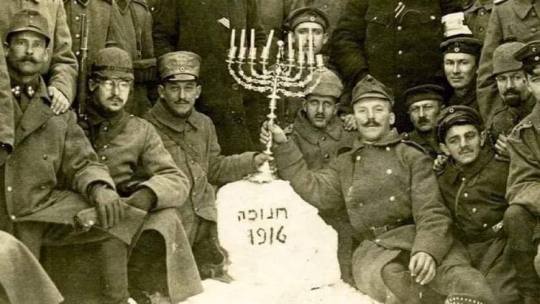
German and Austrian soldiers celebrating Hanukkah 1916 in the front lines during the First World War.
בָּרוּךְ אַתָּה ה', אֱ-לֹהֵינוּ מֶלֶךְ הָעוֹלָם, אֲשֶׁר קִדְּשָׁנוּ בְּמִצְוֹתָיו, וְצִוָּנוּ לְהַדְלִיק נֵר חֲנֻכָּה.
Historia Obscurum
221 notes
·
View notes
Text

Henri Lehmann (German-born French, 1814-1882)
Jeremiah Dictating his Prophecies, Detail, 1842
#jeremiah dictating his prophecies#biblical#christian art#christian#christianity#jewish#art#classical art#fine art#european art#europe#european#fine arts#oil painting#europa#mediterranean#German#Germany#German at#French#Henri Lehmann#1800s#christentum#Jeremiah#Prophet#prophet jeremiah#angel
134 notes
·
View notes